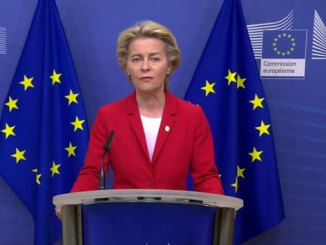
The Government is at the Supreme Court in the latest stage of the legal battle over Brexit.
The highest court in the land is being asked to overturn a High Court ruling that the Prime Minister must seek MPs’ approval to trigger the process of taking Britain out of the European Union.
What is Article 50?
The Lisbon Treaty became law in 2009 to make the EU more democratic. Part of the law was Article 50, a five-point plan for any country that wishes to leave the EU.
Why is the case happening?
The court is being asked to overturn a High Court ruling that the Prime Minister must seek MPs’ approval to trigger Article 50 to start the process of taking Britain out of the EU.
Three senior judges have already said Theresa May lacked power to use the royal prerogative to trigger Article 50 and start the two-year process of negotiating Brexit without the prior authority of Parliament.
How long will it last?
The case is due to last four days and for the first time 11 justices will sit on the panel. A verdict will be announced in January.
What if the Government’s appeal is not successful?
If the appeal is unsuccessful, and any potential further appeal to the European Court of Justice in Luxembourg also fails, the Government’s plans for Brexit could be thrown into disarray and affect the timetable for triggering Article 50.
And if it’s a success?
If the court rules in the Government’s favour, Mrs May can press ahead with her plans to invoke Article 50 by the end of March.
What is the Government’s argument?
Brexit Secretary David Davis is leading the Government’s historic legal action. His team of lawyers, headed by Attorney General Jeremy Wright, will argue that the three High Court judges erred over Article 50 and its use was legally justified by the 23 June referendum vote in favour of quitting the EU.
What is the opposing argument?
The case was originally brought to the High Court by investment manager Gina Miller and hairdresser Dier Dos Santos. They argued that the Government cannot use executive powers to override the rights enshrined in domestic law by statute, and that doing so would undermine parliamentary sovereignty.
Could the case go to the European Court?
All sides agree that, once triggered, Article 50 cannot be revoked. But Article 50 does not deal specifically with this issue and some lawyers believe it can be revoked. If the Supreme Court decides that it needs clarification on Article 50 in order to decide the case, it would have to refer it to the European Court of Justice, which would take months. It would also spark political fury if the EU had any say in how the UK leaves.
Source: ![]() SkyNews.Com
SkyNews.Com






Be the first to comment